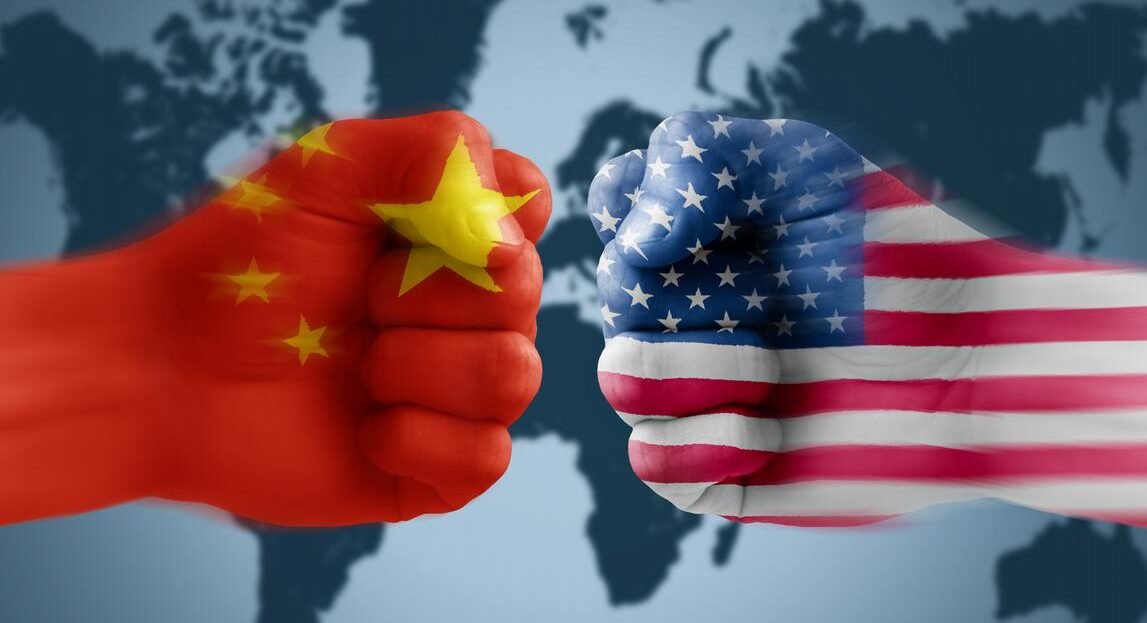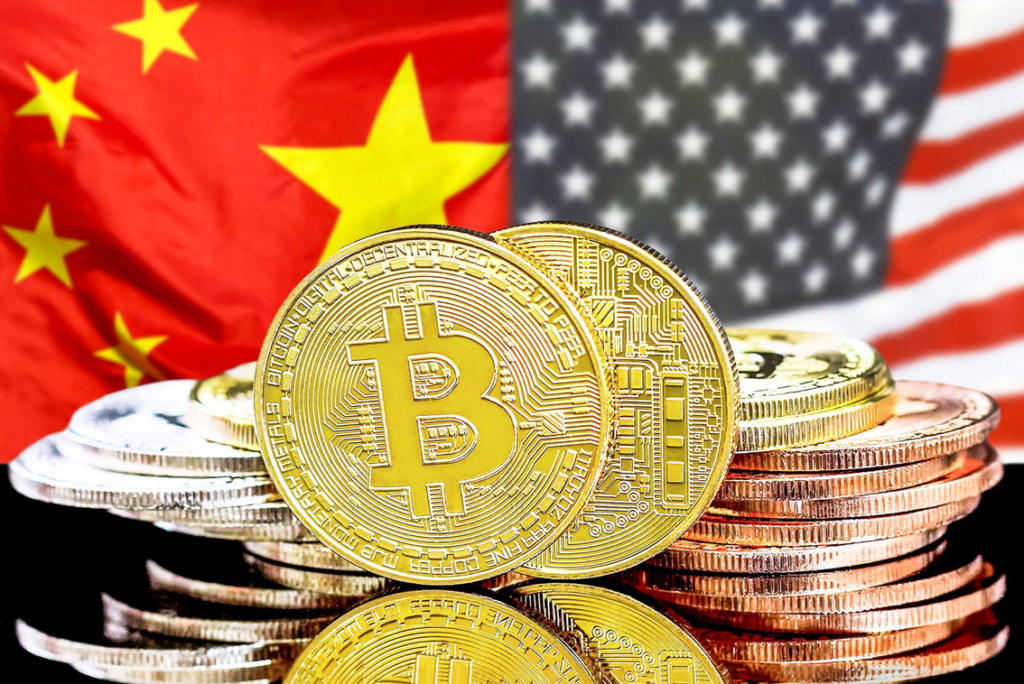As tensions between the US and China grew, the worldwide bitcoin market saw a notable collapse today. The shockingly high 104% tariff the U.S. government put on Chinese imports immediately set off waves of financial upheaval. As investors responded to the increasing uncertainty these new trade regulations brought about, Bitcoin, Ethereum, and many other Cryptocurrencies saw severe drops.
U.S.-China Trade War Escalates
U.S. officials declared on April 8, 2025, the immediate implementation of a 104% tax on Chinese goods. China’s retaliatory tariffs prompted this move. which had already been put at 34% on American goods, this sudden rise in charges, U.S. Treasury Secretary Scott Bessent said that imposing such a high tax was a necessary action to correct what he regards as an unjust trade imbalance. China responded by pledging to fight until the end, characterizing the U.S. action as blackmail and continuing its retaliatory actions.
 In world trade and the financial markets, these tariffs had political consequences far away. Already on edge about the status of the world economy, investors responded to the escalation of the trade war by selling riskier assets, including cryptocurrency. American and foreign stocks suffered; key Asian and European indices fell noticeably. European equities matched the losses seen in the Nikkei 225, Taiex, and other Asian indexes, as high as 5%. The sudden decline in stock prices reflected the worry that such forceful trade policies could generate concerns about the stability of the world economy.
In world trade and the financial markets, these tariffs had political consequences far away. Already on edge about the status of the world economy, investors responded to the escalation of the trade war by selling riskier assets, including cryptocurrency. American and foreign stocks suffered; key Asian and European indices fell noticeably. European equities matched the losses seen in the Nikkei 225, Taiex, and other Asian indexes, as high as 5%. The sudden decline in stock prices reflected the worry that such forceful trade policies could generate concerns about the stability of the world economy.
Crypto Market Plunge
Cryptocurrency prices fell quickly. Bitcoin (BTC), the world’s largest digital asset, fell 29% from $109,225 on January 20, 2025, to $77,466. Following suit, Ethereum (ETH) fell to $2,729, while XRP and Cardano lost 5.1% and 5.8%, respectively. Even meme coins like Dogecoin fell to $0.27 after being immune from market dynamics.
The crypto market, known for its volatility, has long been affected by economic shifts. However, the current drop is remarkable. Cryptocurrencies’ reaction to tariff news shows rising concern about how long-term trade battles and geopolitical events could affect market sentiments. This latest slump, one of the worst in the crypto market, raises concerns about digital assets’ resilience during a global economic crisis.
Crypto Market Volatility
Apart from the declining values, the Crypto market experienced significant liquidation. Within only 24 hours, the market sold over $2.2 billion in positions, demonstrating its rapid response to the ongoing uncertainty. Such massive liquidations intensified the volatility and set off a vicious cycle whereby declining prices resulted in additional liquidations and even more price drops. Bear markets—especially those motivated by outside factors like geopolitical conflicts—have this recurring tendency.
The increased volatility of the crypto market emphasizes the difficulties of investing in digital assets in uncertain times. Although many see cryptocurrencies as a counterpoint to conventional financial markets, it is growing clear that they are not impervious to more general economic shocks affecting other asset classes.
Global Tariff Impact
The wider economic consequences of the U.S.-China tariff conflict are also starting to show themselves. Economists worry more and more that this escalation would slow down the global economy, raise inflation, and rock financial markets worldwide. There is a growing concern that the tariffs could obstruct economic recovery and lead to a decline in global commerce. The Bank of England recently released a statement. Industries like car manufacturing and pharmaceuticals should pay particular attention to this issue. They depend primarily on foreign commerce and supply chains.
 The European Union is debating retaliatory actions in Europe, including a proposed 25% tariff on $21 billion worth of U.S. goods. These possible reprisals will probably aggravate the burden on world commerce and add to the already significant uncertainty weighing heavily on the financial markets.
The European Union is debating retaliatory actions in Europe, including a proposed 25% tariff on $21 billion worth of U.S. goods. These possible reprisals will probably aggravate the burden on world commerce and add to the already significant uncertainty weighing heavily on the financial markets.
Final thoughts
Market players will intently observe the U.S.-China trade conflict as it unfolds for any indicators of de-escalation or additional escalation. Should tensions keep increasing, the market for cryptocurrencies and conventional financial markets will probably become much more erratic. Cryptocurrency investors will have to be alert and quickly adaptable to changing market conditions.
The crypto market remains somewhat speculative. Its future is closely entwined with more general economic pressures and political dynamics between the United States and China. The investors in both conventional and digital markets negotiate a complicated and turbulent global scene where the interaction of trade conflicts, economic policies, and geopolitical concerns will still determine the market’s direction.

